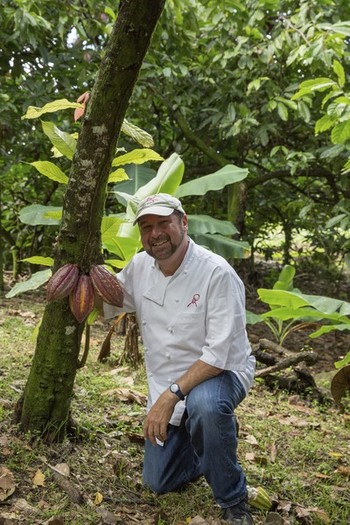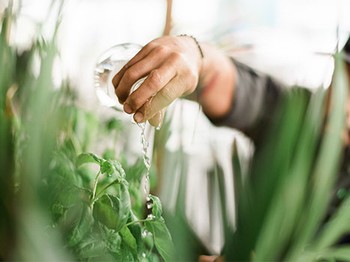ABOUT / SUSTAINABILITY
Vision Statement: Building Miami's Sustainable Culinary Ecosystem

As an author, chef, and expert in the culinary field, Chef Allen envisions a Miami leadership team that proactively embraces sustainability and harmoniously unites farmers, fishermen, chefs, restaurateurs, and hoteliers to create a thriving, eco-conscious culinary ecosystem. Recognizing Miami as the number one food destination in the USA, our vision is to set a global standard for sustainability, working hand in hand with local and national organizations such as Slow Food, Slow Fish, the James Beard Foundation, Michelin, the Ocean Conservancy, Waterkeepers, and Sereia Films.
Our vision is to cultivate a vibrant and interconnected community that not only celebrates the diverse and rich flavors of Miami but also respects and preserves the local environment and resources for generations to come. We aim to establish Miami as a leading city in sustainable food practices, fostering a resilient food system that prioritizes health, ethical practices, and a sense of responsibility towards the planet and its inhabitants.
In pursuit of this vision, we propose the following key pillars:
- Collaboration and Education: Promote continuous learning and awareness among all stakeholders by establishing partnerships between farmers, fishermen, chefs, restaurateurs, and hoteliers. This collaboration will lead to greater knowledge sharing, innovative ideas, and practical solutions to integrate sustainability into every aspect of the culinary industry.
- Sourcing Locally and Seasonally: Encourage all members of the culinary community to prioritize locally sourced, seasonal ingredients. Supporting local farmers and fishermen not only ensures fresher and more flavorful dishes but also reduces the carbon footprint associated with transportation and supports the regional economy.
- Reduce Food Waste: Implement strategies and initiatives to minimize food waste at every stage of the supply chain, from production and distribution to consumption. Through education and practical measures, we will work together to repurpose surplus food, compost waste, and inspire customers to make mindful choices, reducing the overall impact on the environment.
- Sustainable Seafood Practices: Collaborate with fishermen and seafood suppliers to promote responsible fishing and aquaculture practices. By endorsing sustainable seafood choices and discouraging overfishing, we can protect marine ecosystems and preserve the rich biodiversity of our oceans.
- Energy Efficiency and Waste Management: Encourage restaurants and hotels to adopt energy-efficient practices and implement waste reduction and recycling programs. By minimizing energy consumption and managing waste responsibly, we can significantly reduce the culinary industry's ecological footprint.
- Public Engagement and Transparency: Involve the Miami community in our sustainable culinary journey by fostering transparency in our practices. Through education campaigns, workshops, and events, we will empower consumers to make informed choices and actively participate in supporting sustainable initiatives.
- Innovation and Technology: Embrace technological advancements to streamline processes, optimize resource use, and explore innovative solutions for sustainable agriculture and aquaculture practices. This approach will ensure continuous improvement and adaptation to the evolving needs of our environment.

By uniting farmers, fishermen, chefs, restaurateurs, and hoteliers under the shared goal of sustainability, we will create a culinary landscape that showcases Miami's culinary excellence while preserving its natural beauty and resources from its pristine blue Atlantic beaches to the vast green Everglades. Together, we can lead by example, inspiring other cities and regions to follow suit and create a brighter, more sustainable future for our planet.